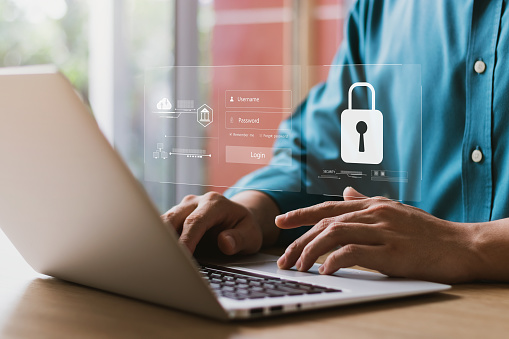Digital banking services (including online and mobile banking) add speed and convenience for today’s consumers. And they make it easier than ever for these consumers to do things like transfer money, pay bills and even deposit checks with just a few clicks and/or swipes — from wherever they may be.
For these reasons and more, large portions of Americans now choose to use digital banking services regularly. In fact, according to a 2023 survey conducted for the American Bankers Association, nearly three-quarters of Americans now do most of their banking via a mobile app or online banking.
Digital banking safety
Of course, with this many consumers using online and mobile banking services, the practice was bound to grab the attention of fraudsters and thieves. This raises the questions: Is online banking safe? And is mobile banking safe?
The answer to each of these questions is yes, as reputable financial institutions implement a long list of highly advanced and thoroughly tested security measures to ensure secure online and mobile banking for their customers. But by taking some extra precautions, consumers can add still more layers of security to their digital banking activities.
7 (more) ways to keep your digital banking safer
Here at Arthur State Bank, we take our customers’ security very seriously. And to help customers keep their money and information better protected, we’ve already posted one blog article on ways to make your digital banking safer, titled “9 Tips, Tricks and Tools for Safer Online Banking.”
But there’s still more consumers can do to protect their personal/financial information and their money when banking online or via a mobile app. Want to add even more security to your online and mobile banking activities? Consider taking these seven additional steps to protect yourself and your account from hackers and thieves:
- Change your passwords regularly — In addition to creating strong passwords (see the previously mentioned “9 Tips …” blog article for some ideas on ways to do that), security experts recommend that consumers change their passwords at least every 90 days. This is because the longer a user’s password stays the same, the longer hackers have to make repeated attempts at cracking it — and creating an all-new password would take any such attempts back to square one.
- … and skip the login saves — Saving your account-login credentials on a website or app that offers this convenience can save you time when you return to access your account. But this is typically not the best idea if your device is accessible by others — especially on banking and other financial-services websites and apps — as doing so can make it easier for other users to access your accounts on your device. (For this reason, most banking and financial-services websites and apps will only save your username, requiring you to re-enter your password for access every time you visit.)
- Employ a unique username — It’s commonplace among consumers to use their names (or some variation thereof) as their usernames for their various online accounts. And while this can make your username easy to remember, it can also make it easier to guess — leaving you more vulnerable to hackers. Instead, consider creating usernames that you can remember, but without using your actual name or other easily discoverable personal details such as your year of birth.
- Avoid banking on public computers or public Wi-Fi — Anytime you’re using a public computer or a public Wi-Fi network, it’s impossible to know with 100% certainty who might be able to observe or track your activities. And in the case of a public computer, subsequent users might be able to see your past activities by reviewing the browser’s history. So particularly when it comes to using websites and apps geared toward banking and other financial services, it’s best to employ extreme caution on public computers and public Wi-Fi networks — or even to steer clear of them altogether, especially if they’re unsecured.
- Check your account activity online regularly — Online and mobile banking make it faster and easier than ever to keep an eye on your accounts by doing things like checking your balances and reviewing your account activities. In fact, they typically enable users to view account balances and transactions in real time — from anywhere and at any time, and without having to wait for a bank statement to arrive in the mail. And by regularly reviewing your account activities, you can more quickly catch and report any suspicious transactions you might discover.
- Be leery of links — To avoid falling victim to phishing and smishing scams, it’s a good idea to refrain from clicking on any links you may receive via email or text, as these can be designed to look legitimate while sending you to bogus/fraudulent websites. Instead — and especially when visiting banking or other financial-services websites — try to make a regular practice of typing in the web address of the site you’re visiting, or even bookmarking the sites you visit regularly in your browser.
- Ensure app legitimacy and security — Especially when installing any apps that require access to your banking or other financial accounts, it’s critical to confirm that they’re legitimate and secure. If installing a mobile banking app, it’s best to follow a download link directly from your bank’s website if possible. And when downloading from the Apple App Store or the Google Play Store, be sure to read the app’s reviews and check its developer details to ensure that it’s legitimate before proceeding.
Proudly serving South Carolina since 1933, Arthur State Bank offers accounts and services to meet a variety of financial needs. To help you achieve all your financial goals, the bank offers in-person service as well as a range of convenient digital solutions. To learn how Arthur State Bank can help you with banking needs ranging from checking and savings to retirement accounts, mortgages, other personal loans and more, visit arthurstatebank.com.






















